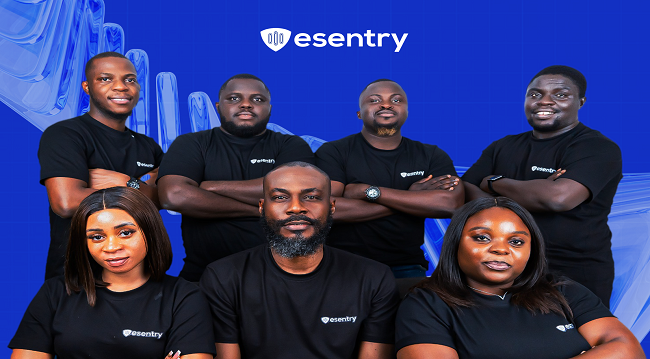E-Business
Cortado Makes Mobile Device Management Productive

Cortado, the leading provider of cloud desktop services, has announced the availability of the new version of its Cortado Corporate Server which combines secure device management with productive desktop features to improve overall user experience
The on-premise solution, Cortado Corporate Server 6.0, not only delivers advanced mobile device management (MDM) for iPhone, iPad, Android, BlackBerry and Windows Phone devices, but also creates entirely new productivity levels for mobile devices through complete and secure integration into corporate IT.
IT departments are challenged to make a significant contribution to improve corporate productivity. When it comes to the use of mobile devices in the enterprise, current MDM systems leave a lot to be desired as their primary focus is on administration, but not on the efficient use of mobile devices.
The new Cortado Corporate Server 6.0 takes a completely different approach. It provides full mobile device management (MDM) and simultaneously integrates smartphones and tablets into corporate IT, giving employees the freedom to work productively and remotely with their devices.
In addition to file access features, database reports, extensive file management, e-mail forwarding of files, print and fax functions are also delivered with the solution.
As an added benefit, because many functions run server-side, data transfer remains manageable.
Cortado Corporate Server employs two methods to ensure maximum security.
The first is unlike other sealed, container solutions, which provoke users to move important company documents to cloud services such as Dropbox, etc. Cortado Corporate Server has an open- and consumer-oriented design that means the user has no need to search for a workaround and move data to uncontrolled cloud services.
Second, an end-to-end security approach allows local encryption of the documents on the device and, in case of emergency and in contrast to current VPN systems – deleting of files or partial deleting of corporate data.
For IT administrators, the new HTML5-based Management Console delivers clear management for all corporate and privately-held devices, users, apps, policies, Wi-Fi profiles and certificates.
It can be accessed from any location, with a current browser making it efficient and easy to offer extended support hours. It also provides full integration with Active Directory resulting in all user activity being displayed just as if it had taken place with a standard PC.
Activities are logged by an audit trail, therefore meeting all current compliance requirements. The solution also provides convenient application management via business and web applications that can now be distributed and managed via Cortado’s Enterprise Resource Store.
“The management of mobile devices in the enterprise should not be an end in itself, but is intended to increase the productivity of employees with their mobile devices,” said Carsten Mickeleit, Cortado CEO.
“Cortado Corporate Server 6.0 offers just that, secure and clear management of devices and at the same time the mobile workforce can complete virtually all the tasks with their smartphones and tablets that they are used to completing on their desktop computer. From our point of view only productive integration like this really makes sense.” Mickeleit added
Cortado Corporate Server for 5 users, including update service and support, costs EUR875, with each additional user costing just EUR105. As an alternative to purchasing, the solution can be leased, including update service and support for just EUR4.47 per user per month (minimum 12 months and 30 users).
A fully functional demo version of Cortado Corporate Server 6.0, including all features is available to download for free: www.cortado.com/corporate.
A free version of the Cortado solution, Cortado Workplace can be downloaded as an individual-user app via any major app store. With Cortado’s free Workplace app that is currently used by over a quarter of a million users, Cortado is addressing the needs of consumerization of IT.
In addition, feedback obtained from users that rate the app is incorporated into the further development of the on-site solution Cortado Corporate Server.
E-Business
Kaspersky Discovers New Phishing Campaign Exploiting Google Tasks Notifications to Steal Corporate Credentials

Kaspersky has uncovered a new phishing scheme that abuses legitimate Google Tasks notifications to trick corporate users into revealing corporate login credentials.

By leveraging Google’s trusted @google.com email domain and notification system, attackers bypass traditional email security filters and exploit users’ trust in familiar services.
In this campaign, victims receive an authentic-looking notification from Google Tasks with the subject line “You have a new task.” The message creates the illusion that the recipient’s company has adopted Google’s task management tool, pressuring them to act quickly. The notification often includes elements of urgency, such as a high-priority flag and a tight deadline, to prompt the victim’s immediate response.
Upon clicking the embedded link, users are directed to a fraudulent form disguised as an “employee verification” page, where they are asked to enter their corporate credentials under the pretense of confirming their status. These stolen credentials can then be used for unauthorised access to company systems, data theft, or further attacks.
“Google’s vast ecosystem of services gets exploited by scammers. The scheme with Google Tasks is part of a broader trend observed before and continuing into 2026, where cybercriminals misuse legitimate platforms to distribute scams and phishing.
Notifications originating from legitimate domains naturally evade many spam and phishing filters, while the social engineering aspect – making it seem like an internal company process – lowers the victim’s guard,” comments Roman Dedenok, Anti-Spam Expert at Kaspersky.
E-Business
esentry 2025 Report Shows Healthcare, Financial Services and Telecoms as Staging Grounds for Increased Cyberattacks in Africa

Cyber adversaries targeting African organisations are increasingly shifting away from opportunistic attacks toward deliberate, sector-specific campaigns aimed at the continent’s most critical digital infrastructures, according to the esentry 2025 Annual Report released by esentry, Lagos-based Africa’s leading indigenous Managed Security Service Provider (MSSP).

The report identifies healthcare, financial services, and telecommunications as the primary staging grounds for high-velocity cyberattacks, reflecting a growing focus on sectors that underpin economic stability, public welfare, and digital connectivity across Africa.
The findings are drawn from one of the largest cybersecurity datasets analysed in the region. Over the course of 2025, esentry processed more than 31 billion security events, generating 3.5 million alerts and successfully blocking over 15,000 malicious attempts. This monitoring scale shows that, while traditional financial institutions remain a core target, the threat landscape has expanded to include digital lending platforms, healthcare systems that store sensitive personal data, and telecom operators responsible for national and regional connectivity.
Within the healthcare sector, the report highlights ransomware as the most acute risk, with attackers frequently exploiting exposed Remote Desktop Protocol (RDP) services to compromise patient data and disrupt essential medical operations. In financial services, organisations are facing a surge in credential abuse, insider-related threats, and info-stealer malware designed to enable fraud and unauthorised access. Telecommunications providers are increasingly targeted by highly tailored phishing campaigns and attacks on exposed web services, which aim to harvest credentials and compromise customer data.
Commenting on the findings, Gbolabo Awelewa, Chief Business Officer at esentry, said the nature of cyber threats across Africa has evolved significantly. “The threats we are seeing today are deliberate, informed, and carefully tailored to local enterprises. Attackers are exploiting trusted access and moving quietly within networks, which makes early detection critical. Our coordinated cybersecurity model, spanning Defence, Intelligence, Offence, and Security Engineering, allows us to combine scale, speed, and deep contextual insight to detect and neutralise threats before they escalate,” Awelewa said.
A defining trend identified in the report is the shift from overt system exploitation to the abuse of legitimate access. By leveraging compromised credentials and ‘living-off-the-land’ techniques, attackers can blend into routine enterprise operations and significantly delay detection. This approach has compressed the attack lifecycle, enabling adversaries to move from initial access to full operational impact in fewer than 15 days.
To counter this acceleration, the report emphasises the importance of early detection and automated response. esentry says it currently contains low-complexity incidents in under 90 seconds, using a combination of structured threat hunting and centralised telemetry to anticipate and absorb attacker pressure rather than reacting after damage has occurred.
As African organisations continue to digitise, the esentry 2025 Annual Report positions itself as a critical reference point for understanding the continent’s evolving cyber threat environment. The report concludes that protecting Africa’s digital trust will require a shift away from fragmented security tools toward disciplined, coordinated defence frameworks, what esentry describes as a unified Phalanx formation.
E-Business
AfDB, UNDP Launch $10Bn AI Initiative for Africa

The African Development Bank Group (AfDB) and the United Nations Development Programme (UNDP) have launched an ambitious $10 billion project to support the adoption of Artificial Intelligence (AI) across the continent.

The 10 Billion Initiative intends to accelerate ethical AI adoption and inclusive digital economic growth in Africa.
The initiative follows the Nairobi AI Forum, which took place earlier this month in Kenya and brought together governments, private sector leaders, development partners, and tech innovators to define pathways for impactful AI adoption.
According to the organisations, the strategy is a co-designed collaboration between the Bank Group, UNDP, and commercial partners that aims to raise up to $10 billion by 2035.
The resources will be used to create up to 40 million new jobs across the continent by 2035, through targeted investments that provide the groundwork for AI and accelerate widespread adoption in everything from entrepreneurship and regional data infrastructure to policy frameworks and skill development.
Nicholas Williams, AfDB Group ICT operations division manager, commented: “As a leading multilateral development institution, the bank is leveraging its comparative advantage to ensure Africa is not left behind in the AI era.
“The AI 10 Billion Initiative paves the way for expanded partnerships and sustained investments that will accelerate AI entrepreneurship, strengthen data and infrastructure ecosystems, and support inclusive growth across the continent.”

 Telecom3 days ago
Telecom3 days agoTelecom Giant MTN Injects N1.0 Trillion CAPEX into Network Expansion

 E-Financial3 days ago
E-Financial3 days agoHistory is Watching: Tinubu’s Moment to Rescue Nigeria’s Stolen Future

 News3 days ago
News3 days agoNITDA Equips Federal Character Commission with Data Tools to Drive Public Sector Reform

 E-Business3 days ago
E-Business3 days agoKaspersky Discovers New Phishing Campaign Exploiting Google Tasks Notifications to Steal Corporate Credentials

 Telecom2 days ago
Telecom2 days agoMTN Nigeria Posts Record N1.70 Trillion Pre‑Tax Profit, Declares N20 Dividend for 2025

 General News2 days ago
General News2 days agoMore 14m Farmers to Benefit from AfDB-backed Initiative

 Telecom2 days ago
Telecom2 days agoDimension Data Nigeria Secures ₦20Billion Funding to Strengthen Digital Infrastructure

 Telecom2 days ago
Telecom2 days agoAlerzo Liquidates Delivery Fleet as N4.38bn Moniepoint Loan Row Deepens














